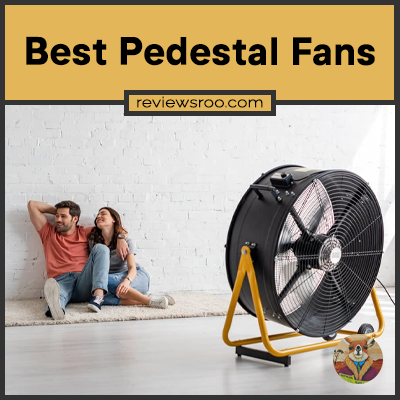Best Air Humidifiers
It’s like stepping into a time machine – the sweet smell of freshness, the whisper of cool air on your face. With the best air humidifiers in your home, you can bring this feeling back to life. Whether you’re looking for a way to reduce dryness and add moisture to your living space or just want to create an inviting atmosphere, there’s a humidifier for everyone.

In this article, we’ll explore the different types of humidifiers available and discuss what makes each one special. From ultrasonic models to evaporative units, we’ll help you make an informed decision about which product is best for you. We’ll also look at factors such as design, noise level, maintenance requirements, and price – so you can be sure you’re getting the most out of your purchase.
Finally, we’ll review some of our favorite humidifiers on the market today. With our top picks in hand, you’ll be able to get the perfect humidifier for your home or office in no time. So let’s dive in and find your ideal solution!
Top Pick: Philips Air Humidifier HU4803/70
The Philips Air Humidifier HU4803/70 is a reliable and effective solution for maintaining optimal humidity levels in your home. Designed with advanced features, this humidifier provides a comfortable and healthy living environment for you and your family.
Featuring NanoCloud technology: The Philips Air Humidifier HU4803/70 ensures the delivery of clean and evenly distributed humidified air. This technology prevents the release of bacteria and harmful particles, providing a safer and healthier environment.
Intuitive and user-friendly controls: This humidifier allows for easy customization of humidity settings. Its precise humidity control function ensures that you can achieve and maintain the desired humidity level in your living space.
Sleep mode that operates with minimal noise: Allowing you to enjoy a peaceful and uninterrupted night’s sleep. This feature makes it an ideal choice for bedrooms or nurseries.
Pros:
- Large Water Tank Capacity
- Auto Humidity Mode
- Easy Maintenance
Cons:
- Limited Coverage Area
- Lack of Humidity Level Display
Portable Bluetooth Speaker
The Portable Bluetooth Speaker is a versatile audio device that offers an immersive and convenient listening experience. With its compact design and powerful features, this speaker is perfect for music enthusiasts on the go.
Advanced Bluetooth technology: The Portable Bluetooth Speaker allows seamless wireless connectivity with your devices. This feature enables you to enjoy your favorite music, podcasts, or audiobooks without the hassle of tangled wires.
Small size: This portable speaker delivers impressive sound quality with its high-fidelity audio output. It boasts enhanced bass and clear treble, providing an immersive and enjoyable listening experience for all genres of music.
Designed for convenience: The Portable Bluetooth Speaker features a long-lasting battery life, ensuring hours of uninterrupted playback. Its compact and lightweight construction allows for easy portability, making it an ideal companion for outdoor adventures or travel.
Pros:
- Wide Compatibility
- Hands-Free Calling
- Splash-Resistant Design
Cons:
- Limited Bass Output
- Short Bluetooth Range
Handheld Flashlight
The Handheld Flashlight is a versatile and powerful lighting tool that offers reliable illumination in various situations. With its adjustable beam, durable construction, and rechargeable functionality, this flashlight is a must-have for outdoor enthusiasts and emergency preparedness.
Featuring an adjustable focus: The Handheld Flashlight allows you to switch between a narrow spotlight and a wide floodlight, providing versatile lighting options for different tasks. This feature makes it suitable for activities such as camping, hiking, and emergency situations.
Constructed with durability in mind: This handheld flashlight is built to withstand rugged environments. Its robust design ensures resistance to impact, water, and other harsh conditions, making it a reliable companion in outdoor adventures.
Rechargeable functionality of the Handheld Flashlight eliminates the need for disposable batteries, offering convenience and cost-effectiveness. With its long-lasting battery life, you can rely on this flashlight for extended periods without worrying about running out of power.
Pros:
- High Lumens Output
- Multiple Lighting Modes
- Portable and Lightweight
Cons:
- Battery Charging Time
- Limited Beam Distance
DeLonghi Microdrop Small Humidifier UHX17
The DeLonghi Microdrop Small Humidifier UHX17 is a reliable and compact solution for maintaining optimal humidity levels in your home. With its advanced features and user-friendly design, this humidifier offers a comfortable and healthy living environment.
Precise and efficient humidification: This technology atomizes water into micro-sized droplets, resulting in a fine mist that is evenly distributed throughout the room, providing optimal humidity control.
Designed with convenience in mind: This small humidifier offers a compact and portable design, allowing you to place it anywhere in your home. Its sleek and modern aesthetic makes it a seamless addition to any decor.
Intuitive and user-friendly control panel: Making it easy to adjust the desired humidity level and monitor the current settings. This feature ensures hassle-free operation and allows you to customize the humidification to your preferences.
Pros:
- Whisper-Quiet Operation
- Automatic Shut-Off
- Easy to Clean and Maintain
Cons:
- Limited Tank Capacity
- Lack of Humidity Display
Benefits Of Air Humidifiers
Air humidifiers help keep the air in a room moist and comfortable. They can help reduce the risk of respiratory illnesses, soothe dry skin, and protect wood furniture from cracking. Plus, they purify the air by removing dust and allergens.
Using an air humidifier isn’t just beneficial for health reasons—it can make a home feel more comfortable to live in too. Humidified air helps reduce electric shock risks and makes it easier to breathe. It also prevents static electricity build up and helps stop wallpaper from peeling or flaking off.
With so many benefits to using an air humidifier, it’s no surprise that there are various types available on the market today.
Types Of Air Humidifiers
When it comes to humidifying the air in your home, one size does not fit all. You may be familiar with the common humidifier shape, a tall cylinder meant to sit on the floor, but there are actually several different types of air humidifiers available for purchase.
The most basic type is an ultrasonic humidifier. This device uses sound waves to create humidity in the form of a cool mist that distributes evenly throughout its surroundings. It’s easy to use and maintain, making it great for first-time users or those who want something low-maintenance.
A more advanced model is an evaporative humidifier. These work by using a fan to draw air into a wet wick filter, which then releases moisture into the atmosphere. The benefit of this type is that it can provide more consistent humidity levels than other models, but they tend to be larger and noisier than their ultrasonic counterparts.
Other options include steam vaporizers and impeller humidifiers, both of which have their own advantages and disadvantages depending on your needs. No matter which type you end up choosing, it’s important to consider factors such as noise level, energy efficiency, and cost in order to find the right fit for you and your home environment.
Factors To Consider When Choosing An Air Humidifier
Choosing the right air humidifier can be a tricky task. From features to size, there are many factors to take into consideration before you make a decision. To help make it easier, let’s look at the main elements to consider when picking out your new device.
Firstly, think about what size of humidifier you need for the space you want it in. If your room is large and open-plan, then a bigger model will be needed, but if it’s smaller or more enclosed then a smaller one might do the trick. Next, consider how much moisture the humidifier needs to produce – this will depend on both your space and the climate in which you live.
Lastly, it’s important to choose one that fits with your lifestyle and budget. Think about how often you’ll use it and if you’d prefer something low maintenance or have time to clean regularly. Additionally, decide whether noise levels are important – some run quietly while others can be quite loud.
When making your choice, it’s helpful to break down all these factors into two categories:
- Size:
- Room size
- Moisture output
- Lifestyle:
- Maintenance
- Budget
- Noise levels
Weigh up each factor and decide what works best for you so that you can enjoy a comfortable environment in no time!
Features Of The Best Air Humidifiers
John and his family moved into a new home, only to find the air dry and uncomfortable. They realized they needed an air humidifier to help regulate the humidity levels in their home.
When choosing an air humidifier, features such as size, water tank capacity, noise level, mist output and filter type should be considered. But when it comes to the best air humidifiers, there are more advanced features available.
Most high-end models now come with adjustable settings for different season needs and some even have automatic shut off capabilities. Some of them offer additional features such as aroma diffusers and nightlights that make them ideal for use in bedrooms and living areas. Thorough research is necessary to identify the best air humidifiers on the market and understand their features to ensure they meet your needs.
Before investing in an air humidifier, it’s important to understand how to properly use it.
How To Properly Use Air Humidifiers
Have you ever wondered how to properly use an air humidifier? Knowing the right way to use a humidifier can help you get the most out of it for optimal comfort and health benefits. Let’s explore how to use a humidifier correctly.
First, prepare your space by positioning the humidifier in a place that is easily accessible and away from any furniture or walls. Make sure it is on a flat surface, so it will not be tipped over. Once you have placed the device where you want it, fill its reservoir with filtered water or distilled water and wait until the device starts working.
Air humidity levels should be maintained between 30%-50%, so adjust your device’s settings accordingly. Most modern models come with built-in sensors that detect humidity levels in the room and adjust automatically, but if yours does not have this feature, you’ll need to monitor it yourself and make adjustments as needed. Additionally, make sure to clean your humidifier regularly; otherwise bacteria and mold may grow inside, which could spread germs into the air. With these tips in mind, you should be able to get the most out of your air humidifier. Now let’s look at maintenance tips for air humidifiers…
Maintenance Tips For Air Humidifiers
Maintaining an air humidifier is essential for its longevity. Cleaning and replacing parts regularly will ensure that it keeps working correctly. To do this, first unplug the unit. Then, empty any excess water from the tank. This should be done at least once a week, more often if needed.
Next, clean out the tank with warm water and vinegar or a mild detergent. Be sure to rinse thoroughly afterwards. Don’t forget to dry out all the parts before reassembling them. Additionally, replace the filter every two months or as needed for optimal performance.
These steps are easy and take only a few minutes of your time each week to ensure your air humidifier is running smoothly and efficiently. With proper maintenance and care, you can enjoy many years of improved air quality in your home or office. Now that you know how to properly maintain an air humidifier, let’s explore some of the health benefits they provide.
Health Benefits Of Using Air Humidifiers
Humidifiers can bring a host of health benefits to your home. They help keep indoor air moist, reduce the risk of respiratory illnesses, and improve sleep quality.
Using a humidifier in your home helps keep the air moist, which makes it easier for you to breathe. This is especially beneficial for those with respiratory ailments such as asthma and allergies. It can also help reduce the effects of cold and flu viruses by preventing them from spreading through dry air. Furthermore, having a humidifier in your bedroom can help you sleep better at night by reducing nasal congestion and improving sleep quality.
Using a humidifier in your home has plenty of health benefits that make it worth considering. Understanding the importance of proper maintenance and safety precautions will ensure you get the most out of your device.
Important Safety Precautions For Air Humidifiers
The use of air humidifiers is widely accepted, but is it really safe? Research shows that with the proper safety precautions, using an air humidifier can be beneficial for your health. Here are some important safety precautions to consider when using an air humidifier:
- Make sure that the water inside the unit is clean and free from bacteria.
- Clean and replace filters regularly according to manufacturer’s instructions.
- Keep young children and pets away from the unit while in operation.
- Always use distilled or filtered water instead of tap water.
Using an air humidifier can help improve air quality, reduce indoor allergens, and soothe dry skin and sinuses. But it’s important to remember that improper use of a humidifier can cause serious health risks such as mold growth or electric shock hazards. Adhering to these safety precautions will ensure that you get all the benefits of a humidifier without any dangerous risks. Knowing how to safely use an air humidifier is essential for maintaining good health and protecting yourself from harm. Next we’ll look at tips for choosing the right room size for an air humidifier.
Tips For Choosing The Right Room Size For An Air Humidifier
Choosing the right room size for an air humidifier is important. It’ll determine how efficient the unit will be, and can save you money in the long run. Here’s a few tips to help you out:
- Measure your room accurately so you know what size of humidifier to get.
- Factor in other elements that may affect your space such as windows and doors that open frequently, or a larger crowd than usual.
- Look up the recommended humidity levels for bedrooms and living areas, then use this guide to decide on a suitable capacity for your needs.
For small rooms, a tabletop humidifier usually does the job just fine. For larger spaces, however, it’s better to invest in a console or whole house system that can cover more ground. It’s best to buy an adjustable model so you can adjust humidity levels if needed – too much moisture isn’t good either! With this info at hand, you’ll be able to choose a model that suits both your lifestyle and budget when comparing costs of different air humidifiers.
Cost Comparison Of Different Air Humidifiers
Humidifiers are a great way to improve the air quality of your home. But with so many on the market, understanding which one is right for you can be tricky. One key factor to consider is cost.
Take, for example, Joe. After months of research and comparison-shopping, Joe found his ideal humidifier – the perfect balance between features and price. He had just begun to enjoy the improved air quality in his home when he discovered a competitor’s product that was almost exactly the same but cheaper. This reminded him of an old adage: “you get what you pay for”.
Understanding your budget is critical when choosing a humidifier. Do some research and compare prices among different brands and models to ensure you make a choice that best fits your needs. Don’t get caught up in all the bells and whistles; focus on finding something within your price range that provides basic functionality and reliability. That way, you’ll save yourself time, money, and frustration in the long run.
Frequently Asked Questions
How Often Should I Replace My Air Humidifier Filter?
Humidifiers are essential in many homes. But how often should you replace the filter? It depends. Most manufacturers recommend changing your filter every three months, but it can vary depending on the type of humidifier and use. Some filters last up to six months, while others may need to be replaced more frequently.
To be safe, check your owner’s manual for specific recommendations. When replacing the filter, make sure you buy the correct replacement filter for your model and that it is of good quality. Poor-quality filters can reduce air flow and decrease your humidifier’s efficiency. Also, regularly clean and disinfect your humidifier to prevent bacterial growth. Regularly replacing your filter ensures the air in your home remains clean and comfortable. This will help keep you and your family healthy over time.
Are Air Humidifiers Noisy?
The low hum of a machine, the sound of water droplets falling into a pool of water and the peacefulness that comes with it – these are all images associated with air humidifiers. But one question often lingers in people’s minds: are they noisy?
The answer depends on the type of humidifier. Some models can be quite loud, while others offer a more subtle sound. It is important to consider where the humidifier will be placed before buying one. If it will be placed in an area with low noise levels such as a bedroom or study, then you should look for a model that is quieter.
TIP: Always check the decibel rating before buying an air humidifier to find out how loud it will be.
Do Air Humidifiers Use A Lot Of Electricity?
It’s often assumed that air humidifiers use a lot of electricity, but this isn’t necessarily the case. While it is true that some models can be energy-hungry, most models have been designed to consume low levels of power. In fact, modern air humidifiers are often very efficient when it comes to energy usage.
The amount of electricity an air humidifier uses will depend on its size and settings. Smaller units usually consume less energy than larger units, while running the device at a lower setting can save you even more money on your electric bill. The best thing to do is look into the specific model you’re interested in and check what their estimated energy usage is. That being said, most air humidifiers won’t make a significant dent in your energy bills.
Do Air Humidifiers Cause Mold Growth?
In the US, an estimated 50 million people suffer from allergies and asthma. Air humidifiers are often used to help relieve symptoms like dry skin, sinus issues, and difficulty breathing. But do they cause mold growth?
Humidifiers can encourage mold growth if they’re not properly maintained. If a room has high humidity levels for too long, mold spores can become airborne. It’s important to keep the humidifier clean and empty any standing water after use. Regularly changing filters is also key in preventing mold growth in the home.
Keeping humidity levels between 40% and 60% can reduce potential health risks of mold exposure. Humidifiers should be monitored closely when used in rooms with carpeting, fabrics or paper products like books that attract dust particles and moisture easily. Taking these precautions will ensure healthy air quality in your home while reaping the benefits of air humidification.
Do Air Humidifiers Help With Allergies?
Using an air humidifier is like a breath of fresh air for allergy sufferers. It’s the perfect tool to help keep allergies at bay. Here are 3 ways an air humidifier can help with allergies:
- Humidifiers add moisture to the air, which helps reduce dust mites and other allergens from becoming airborne.
- They also reduce static electricity, which reduces the amount of pet dander in the air.
- Finally, they can help soothe irritated sinuses and eyes caused by dry air.
Humidifiers provide relief from many symptoms of allergies such as sneezing fits, watery eyes, and itchy skin. The moistened air helps relieve congestion and soothes the nasal passages, allowing easier breathing. It also helps to reduce coughing fits and prevents further irritation in your respiratory system.
Air humidifiers are great allies in the battle against allergies. Not only do they make your home more comfortable; they also help improve your overall quality of life by reducing allergy symptoms and making breathing easier. So if you’re looking for a way to combat pesky allergy symptoms, an air humidifier might be just what you need!
Conclusion
I’m sure you’re wondering which air humidifier is best. The answer depends on personal preference and what features are important to you.
When it comes to filter replacement, some models require changing the filter every few months, while others may not need replacing for up to a year. If you want one that’s quiet, look for an ultrasonic model as they tend to be the quietest. Electricity use varies depending on the model, but all air humidifiers are designed to be energy-efficient. Mold growth won’t happen as long as you keep your unit clean and follow the manufacturer’s instructions for maintenance. And lastly, humidifiers can help with allergies if humidity levels in your home are kept between 40-60%.
In conclusion, there are many factors to consider when choosing an air humidifier. But if you weigh the pros and cons of each option and make sure it fits your needs, you’ll be able to find the perfect one for your home.








